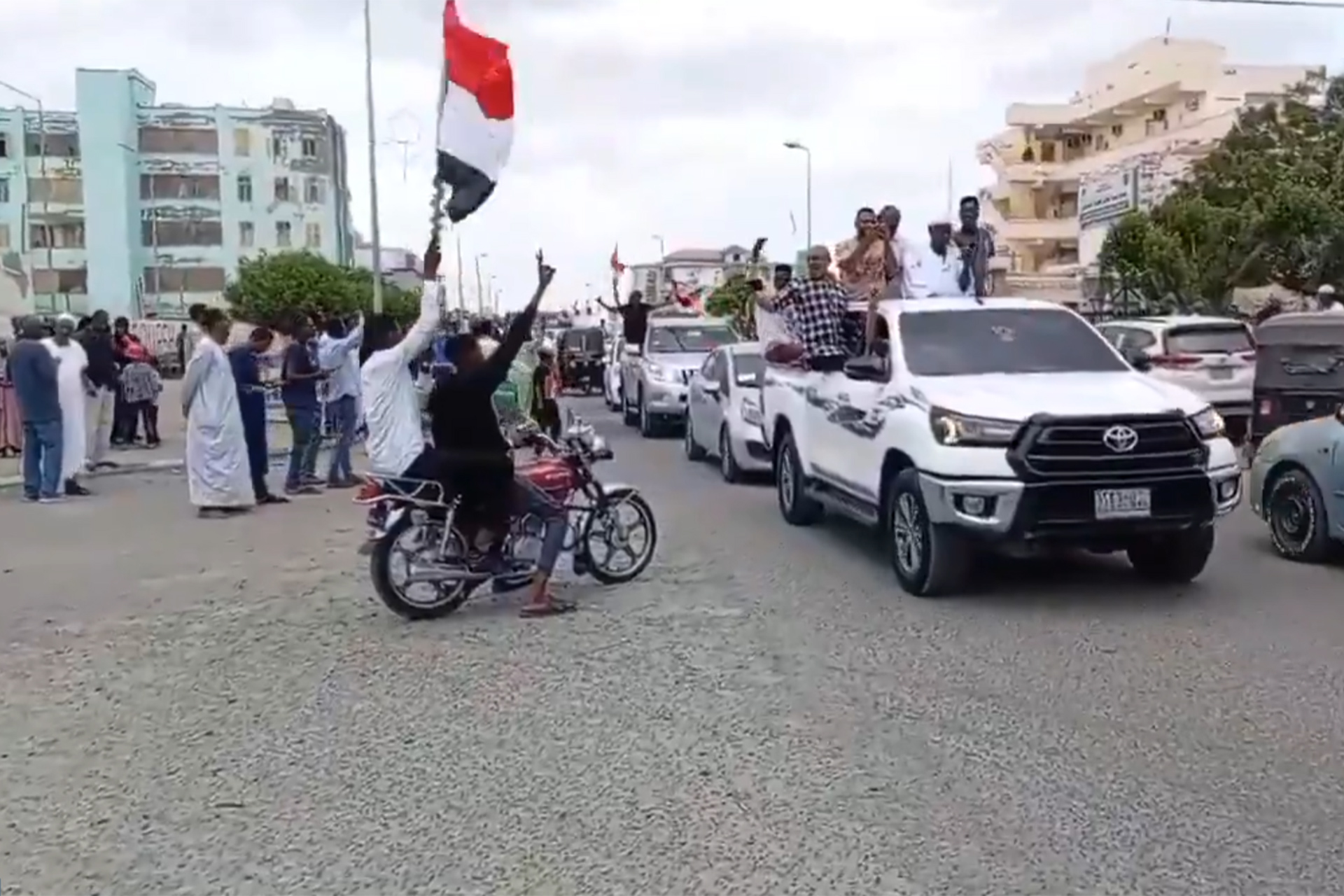11/1/2025–|Last updated: 11/1/202510:42 PM (Mecca time)
Writer and political researcher Diaa El-Din Bilal said that the Sudanese army’s control of the city of Wad Madani represents a major strategic shift in the ongoing conflict with the Rapid Support Forces.
He explained, during his talk to Al Jazeera, that the importance of Wad Madani goes beyond its geographical location because it connects 5 Sudanese states. It is also considered the first and second economic city in terms of population density, in addition to its historical symbolism that was linked to Sudan’s independence through the graduates conference.
Earlier today, Saturday, the Sudanese army announced its complete control over the city of Wad Madani, as the special action commander for the Sennar axis, Fath Al-Aleem Al-Shoubli, reported that the armed forces were conducting extensive combing operations after the Rapid Support Forces fled towards northern Wad Madani.
Dia al-Din Bilal added that the former fall of Wad Madani to the Rapid Support Forces represented a broad moral victory for the militia, which gave it the opportunity to achieve moral gains amid criticism directed at the army and its leadership at the time.
Therefore, regaining control today is considered a major victory that reflects a change in the balance of power, and expresses a state of national joy spreading throughout Sudan, including demonstrations at home and abroad.
Bilal pointed out that this military achievement is not the result of the moment, but rather the result of continuous efforts for more than 6 months, as the Rapid Support militia began to retreat since its defeat in Jabal Muwayya last October.
He believes that the support militia was relying heavily on mercenaries from outside Sudan, but it recently suffered a series of successive collapses that made it unable to launch attacks or maintain the areas it controlled.
Agents
Bilal attributes the factors of the Rapid Support Militia’s long steadfastness to the great regional support and complicity of some neighboring countries, which provided it with passages and military equipment, according to him.
But he confirms that the Sudanese army, thanks to its experience spanning more than 100 years and its strategic tactics, was able to dismantle the main forces of the militia, which led to its rapid decline.
Regarding regional support, Bilal explained that there has been a change in international positions, as a diplomatic blockade was imposed on the militia, and the United States imposed sanctions on its leader, Hemedti, and accused it of committing genocide crimes in El Geneina.
Regarding the accusations against the Sudanese army of committing violations, Bilal stressed that there is a difference between accidental violations resulting from military miscalculation and systematic violations aimed at ethnic cleansing or genocide, noting that the militia practices a systematic policy of crimes, according to international reports.
Regarding the next steps, Bilal stressed that the restoration of Wad Madani does not mean a complete end to the war, but it represents a major turning point that opens the door to ending the militia’s nightmare. He stressed that the national situation that unites the Sudanese around the army is a fundamental force in this conflict, considering it an unprecedented situation in the history of Sudanese politics.
Since mid-April 2023, the Sudanese army and the Rapid Support Forces have been waging a war that has left more than 20,000 dead and about 14 million displaced and refugees, according to the United Nations and local authorities, while research conducted by American universities estimated the death toll at about 130,000.

